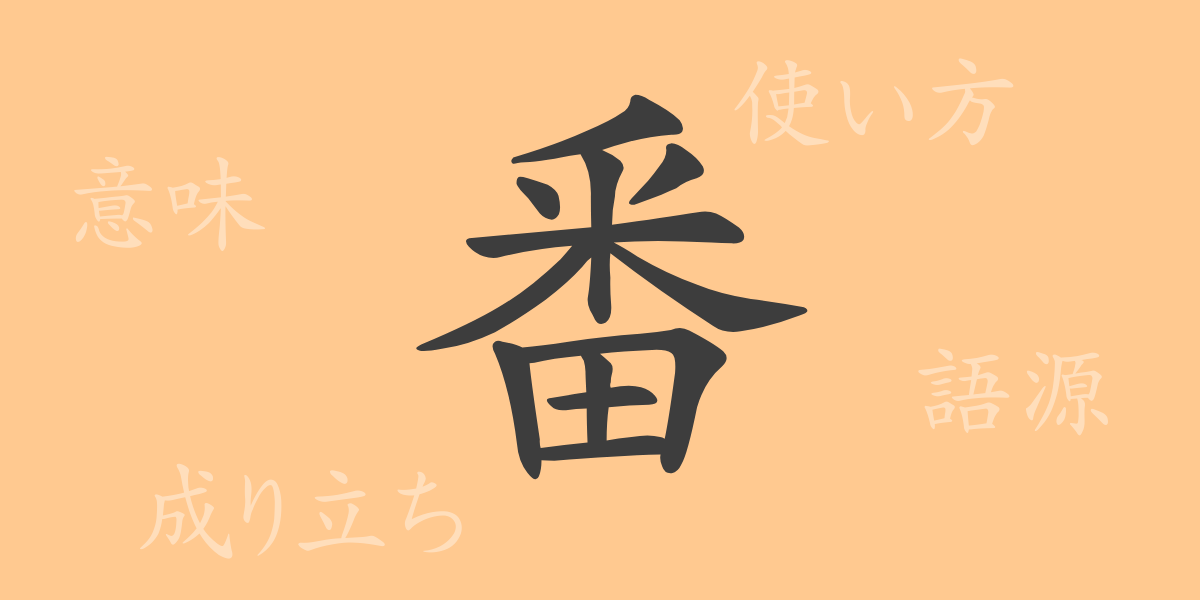“`html
Japanese (にほんご) has many kanji (かんじ) characters, each with its unique meaning and history. “番” (ばん) is one of the commonly used kanji in Japan and is an important character frequently used in daily life. In this article, we will delve into the origin, meaning, usage, readings, stroke count, and radical of “番” (ばん). We will also touch on idioms, phrases, and proverbs that use “番” (ばん). Let’s explore the world of “番” (ばん) together while appreciating the depth of the Japanese language.
Origin of 番 (ばん)
The kanji “番” (ばん) was introduced from ancient China, and its origin lies in the “番” (ばん) work performed when tilling fields, meaning to work alternately in designated sections. This usage, signifying alternation or sequence, is still prevalent in many contexts today. Additionally, this kanji is used to indicate order or division, as seen in addresses (番地, ばんち) and numbers (番号, ばんごう).
Meaning and Usage of 番 (ばん)
The kanji “番” (ばん) means “order,” “alternation,” or “number.” It is also used to refer to specific roles or jobs, such as in TV programs (テレビ番組, ばんぐみ) or security duties (警備の番, けいびのばん). Furthermore, it is often applied in situations involving responsibility or duty, such as “お番” (おばん) for guarding someone or “見張り番” (みはりばん) for a lookout on duty.
Readings, Stroke Count, and Radical of 番 (ばん)
The kanji “番” (ばん) is a fundamental character in Japanese, and its readings and structure have several characteristics.
- Readings: In on’yomi (音読み), it is read as “バン” (ばん), and in kun’yomi (訓読み), it is read as “つが(い)” (つがい).
- Stroke Count: “番” (ばん) has a total of 12 strokes.
- Radical: Its radical is “田” (たんぼへん), which means “rice field.”
Idioms, Phrases, and Proverbs Using 番 (ばん) and Their Meanings
There are numerous idioms, phrases, and proverbs in Japanese that include “番” (ばん). For example, “一番” (いちばん) means “the most” or “first place,” and “番犬” (ばんけん) means “guard dog.” Additionally, “番人” (ばんにん) refers to “a person who manages or watches over a place or thing,” and “当番” (とうばん) means “a duty or role that comes around in turn.” These expressions reflect the deep meanings of words born within Japanese culture and society.
Conclusion About 番 (ばん)
By understanding the history and origin of the kanji “番” (ばん), one can appreciate the richness of the Japanese language more deeply. This frequently used character in daily life is indispensable for indicating order, alternation, and roles. Knowing idioms, phrases, and proverbs that include “番” (ばん) can expand your communication range. We hope this article helps you understand the diverse meanings and usages of “番” (ばん) and deepens your comprehension of the Japanese language.
“`

























